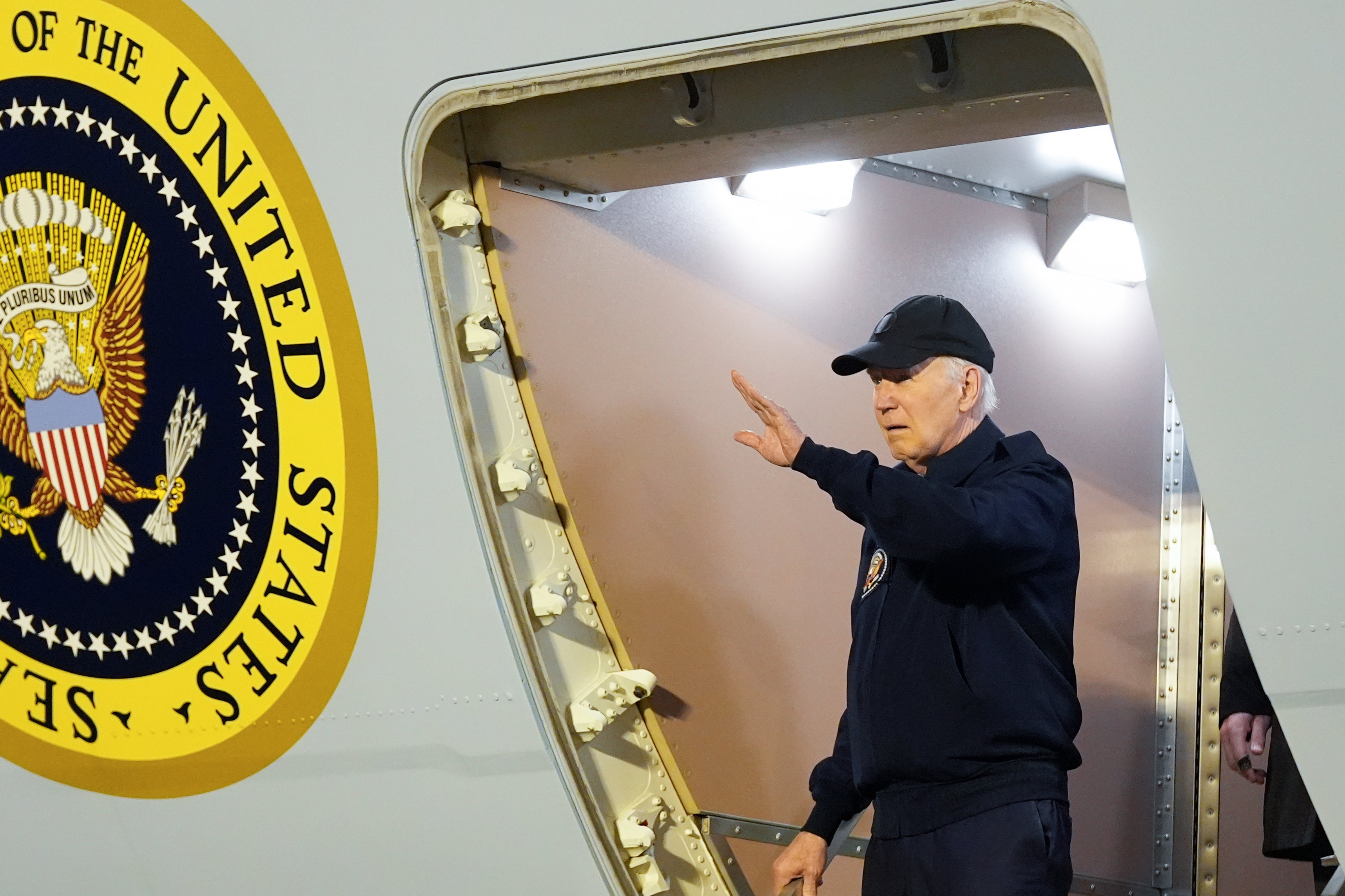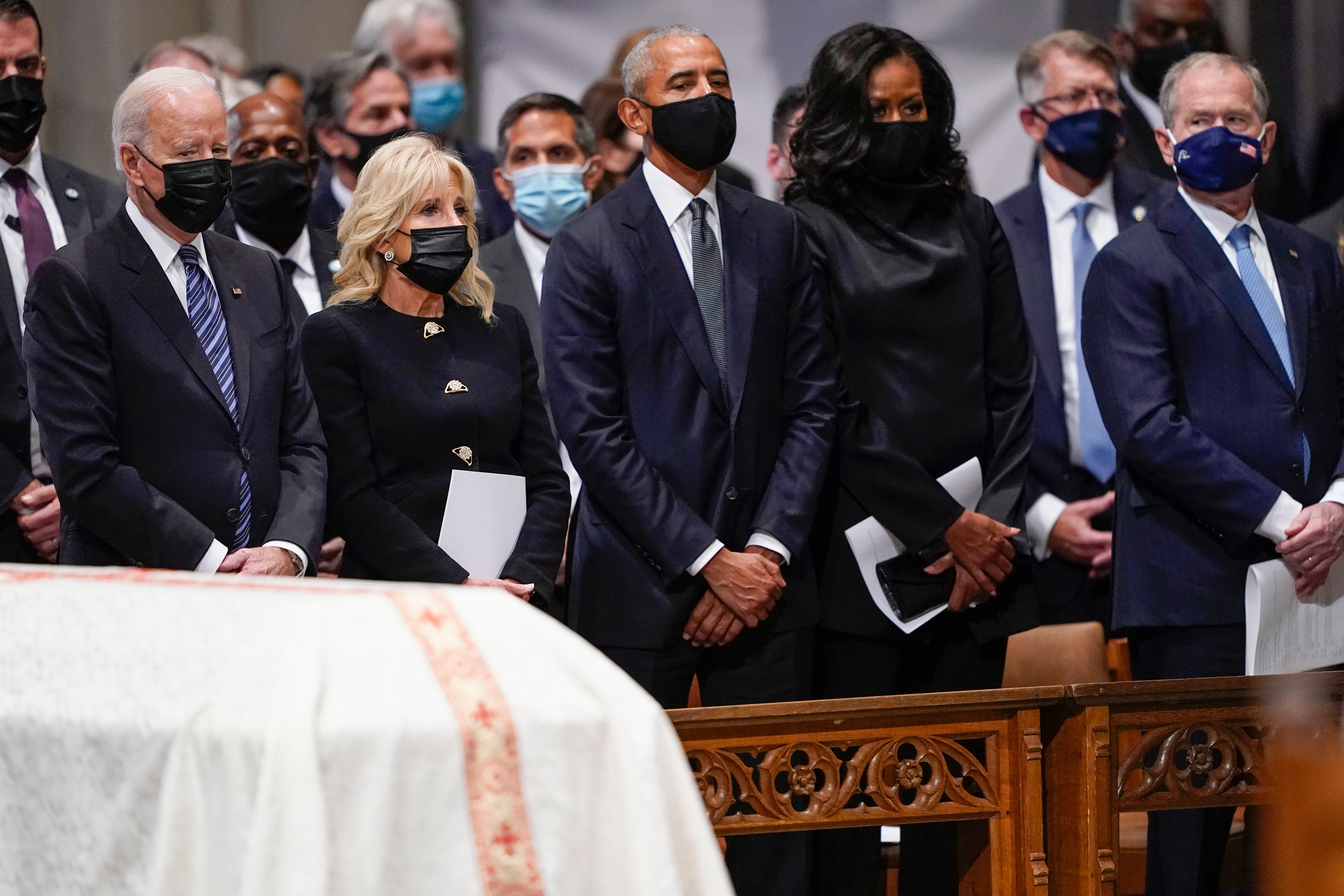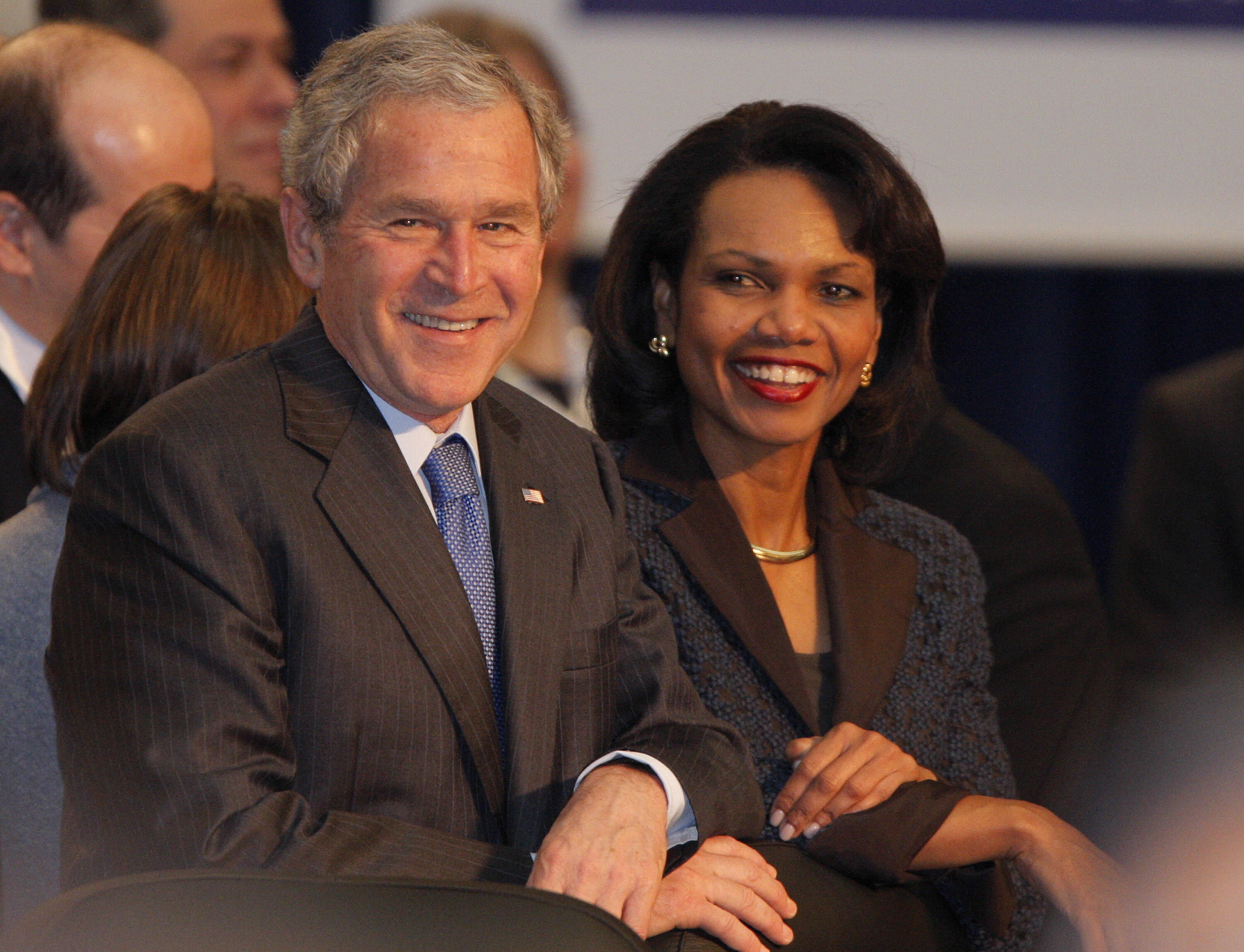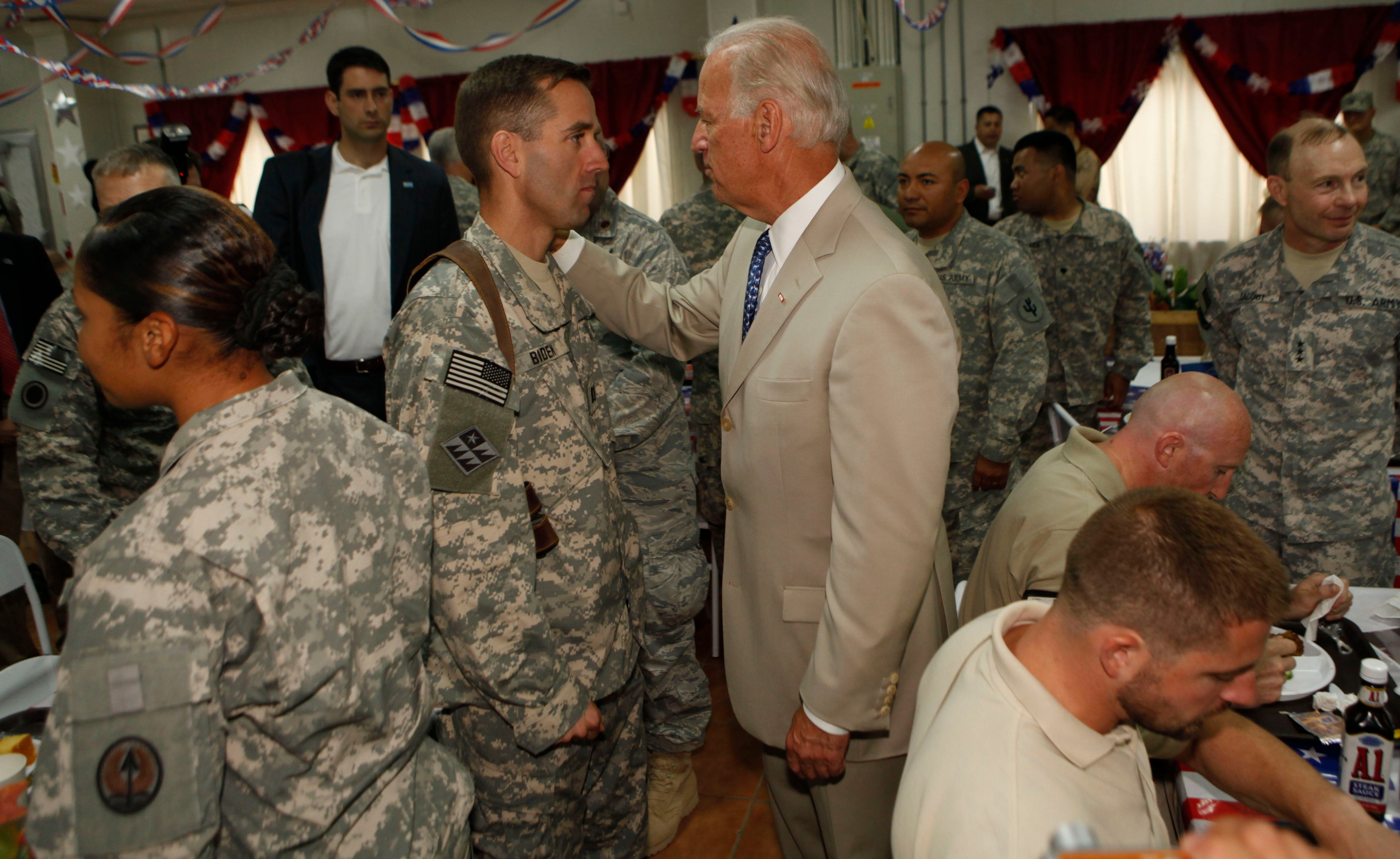Meet the White House doctor who greets Joe Biden every morning — and who Trump wants to investigate

Support truly
independent journalism
Our mission is to deliver unbiased, fact-based reporting that holds power to account and exposes the truth.
Whether $5 or $50, every contribution counts.
Support us to deliver journalism without an agenda.

America’s 46th president marked the decision with a simple, solemn letter – an announcement to the world that he would no longer seek a White House second term. Joe Biden’s Sunday missive may have sent Democrats into practical and hypothetical planning overdrive, but it followed fervent, growing concern from all sides about the 81-year-old’s health.
Donald Trump and his new running mate, for example, have even called for investigations into the medical team who’ve been tending to President Biden to date. So just where, and who, is the Commander-in-Chief’s doctor?
The answer is Kevin O’Connor, a jovial 58-year-old military physician who’s been treating the Biden family for years. And unlike seeing a patient for a yearly physical, O’Connor spends nearly every day in very close proximity to Biden, staying in the hotel room next to him when they travel and greeting him each morning. His office is right across from the elevator from which Biden emerges every day, and the President must pass it “every time he goes to and from the Oval,” the doctor told military medical podcast WarDocs earlier this year.
“That’s by design for a number of reasons; Number One is, we are literally assessing every day,” said O’Connor, the married father of three daughters. “Think about it: You have a conversation, you’re assessing their breathing, their mentation, their dentition, their hearing assessment, their color, and so part of it is just for that exposure.”

Aside from diagnosing Biden with Covid last week, however, O’Connor has been quiet in recent months about the President’s cognitive condition. And he found himself facing more and more demands for answers after Biden’s repeated disastrous appearances on the 2024 campaign trail – particularly as Democrats worried the President was unfit to take on Trump in the high-fervor, high-stakes race.
O’Connor should be accustomed to scrutiny; he’s been treating White House incumbents for nearly two decades. And he’s been candid about how it’s not the career he always dreamt of landing.
“You’re going to be in a golf cart, following the president around on a rainy Sunday and questioning your life choices,” O’Connor warns potential White House medics interviewing for his team. That’s what he told the SAMOPS Specialty Spotlights podcast in December as he shared his experience with military medical listeners newer to the field.
“This service is very important, but it’s very indirect,” said O’Connor, who was more accustomed to battle conditions nearer the start of his career – deploying as part of Operation Iraqi Freedom, for example.
In contrast, in the White House, “We think … of all the bad things that happen, and we plan all the time – but for the most part, you’re sitting in the hall with a 40-pound bag full of magic, waiting for something to go boom,” he said.
“And thank God, most of the time it doesn’t. But if it does, we’re ready.”
You’re going to be in a golf cart, following the president around on a rainy Sunday and questioning your life choices
Kevin O’Connor warns future White House physicians of what the job entails
O’Connor was raised in New Jersey with great respect for the military tradition; his father served in the Navy before becoming a cop and often told his son “about the Army and the Navy and how that’s a great and honorable lifestyle,” the doctor told WarDocs.
A high school wrestler, O’Connor unsurprisingly then attended St Bonaventure University in upstate New York on a ROTC scholarship, graduating in 1988 with a major in biology and minor in theology. He went on to medical school at NYIT, where a campus visit from Army Maj. Gen. Philip Volpe – command surgeon in the Battle of Mogadishu who’d graduated from the institution years earlier – changed the course of his future.
“To me, he was bigger than life—a superhero with medals, a Purple Heart. A war hero doctor sitting down with a handful of army students,” O’Connor said in an NYIT alumnus profile. ““[Volpe’s] been a lifelong mentor, and I’ve been trying to serve as he has ever since. I answered similar calls and now count him as a good friend.”
O’Connor graduated from NYIT’s college of osteopathic medicine in 1992, and the DO – not to be confused with MD (he jokingly calls MD physicians “muggles”) – went on to serve numerous tours of duty with the 82nd Airborne Division, 75th Ranger Regiment, and U.S. Army Special Operations Command – including combat rotations to support classified missions in Afghanistan, Iraq, and Bosnia, according to the NYIT profile.
O’Connor earned a reputation for his “pioneering role” in battlefield trauma care and was an early advocate of using ketamine to treat severe depression in service members and veterans, retired navy surgeon Frank Butler told ABC. Of O’Connor’s many awards and military recognitions, he told his alma mater, NYIT, that the Combat Medic Badge meant the most to him – an award earned for field medical work under fire.
He was working as a hospital administrator at Fort Carson in Colorado, however, when a fateful consult call first brought him into contact with the presidency. His friend Daniel Parks, who was working as a White House physician in 2006, rang O’Connor to say he was going to be in Denver; he asked O’Connor to drive up from Colorado Springs to see a patient about a back problem using the DO’s osteopathic “black arts,” O’Connor joked in the SAMOPS podcast.
“I assumed he wanted me to see a Secret Service agent or something like that,” O’Connor said. “And mostly I just wanted to see my friend Dan and have a beer and catch up … it ends up the patient he had in mind was President Bush.

“I put him on the table and beat him up pretty good; he appreciated it, and then the next time he was in Denver, he said, ‘Hey, can that guy from Fort Carson come up and see me again?’ And so I did – and then the third time around, they said, ‘Hey, maybe you want to interview … full-time.”
O’Connor is relaxed, modest and frequently joking; he called himself the “Forrest Gump of military medicine” in his WarDocs interview earlier this year. Those qualities likely endeared him to President Bush, famed for nicknames and inside jokes; the 43rd President labelled O’Connor “Bone Crusher” for his back ministrations.
“I was Bone Crusher, and then, over the course of time, that morphed into Bone Cracker … that actually morphed into Cracker, which was unfortunate, because that doesn’t sound good,” O’Connor told WarDocs, referencing a slur for Caucasians – before retelling a story about being in an elevator with then-National Security Advisor Condoleeza Rice.
“The President comes in: ‘Condi. Cracker,’” O’Connor said in imitation of the greetings. “And I’m looking around, like, is he even aware that this is a racial thing? And we just smiled, but he enjoyed it.”

O’Connor joined the White House medical team the same year, looking after Bush and Vice President Dick Cheney, though he was neither’s primary care physician. When the Obama administration took over, he expected to finish out his predetermined three-year tenure with six months working for the Democrats.
“I figured I can do anything for six months, and I frankly didn’t love the job,” O’Connor said in the SAMOPS podcast. “I was looking forward to going back to Special Operations, because the war was still going on, the guys were still down range, and I kind of missed that … as fate would have it, they said, ‘Hey, we want you to be P to VP,’ as they call it – the physician to the vice president.
“And I wasn’t sure I was going to enjoy that, because the only thing I knew about Joe Biden was whatever Fox News had told me here, because that’s the only station you saw in the Bush White House.”
He ended up studying Biden and reading his writings in addition to getting to know him personally – “and eventually I ended up really becoming a fan of then-Vice President Biden,” he said.

“We became close over the years and you end up being involved in a lot of important family things – with his mom and his other family members and himself.”
Important to note is O’Connor’s role during the terminal illness of Biden’s oldest son, Beau, who died in 2015. The 46th President wrote about the doctor in his 2017 memoir Promise Me, Dad, detailing how O’Connor counseled his son, offered a sober assessment of his prognosis and was also present in the operating room to help calm Beau during a craniotomy.
After the Obama administration handed over the White House to Trump, O’Connor – who also teaches at George Washington University – retired as a colonel.
He wouldn’t be gone from the White House for long, however.
“We became close and then [Biden] went and got re-elected – and so at that point, I was all in Joe Biden,” the doctor told the SAMOPS podcast. He returned to the White House to be the 46th president’s personal physician at Biden’s request.
“How do you tell the President, ‘No, I’m not going to help?’” O’Connor continued. “So here I am, back again, approaching my 15th year of my three-year tour.”

It hasn’t all been smooth sailing against the divisive political backdrop and the aging of his 81-year-old patient. Biden has said he’d step down if told he was unfit by his physicians; O’Connor latest report in February cleared him for duty. The doctor has defended neurologist visits to the White House as routine.
But he’s been weathering demands from Republicans to answer more questions about Biden’s health – and the doctor’s own business connections to the family – in the face of the President’s disheartening appearances.
Because O’Connor, more than anyone, bears witness to his patient on a day-to-day basis.
Even on travels, the doctor – or a trusted member of the medical team in which he insists he has full confidence — is within almost immediate reach of the President.
“The way it works in a hotel is, the President’s got the coolest room, and – not because we’re the doc, but just because of what the mission is – we tend to have the second-coolest room,” O’Connor said in the SAMOPS podcast. “We’ve got to be right next to them … part of it is just courtesy to the President; if they have indigestion or whatever, they shouldn’t have to look for the doc, and they shouldn’t have to let 15 people know they have a symptom, to get the doc.”
He and his team, he said, “take care of the President, the First Lady and the Vice President 24/7, 365, anywhere in the world – and if they’re going somewhere in the world … that whole map, we’ve traced, and we know that, every step along the way, ‘OK, if something bad happens here, where are we going to go? How are we going to get there? Are we going to drive, or are we going to fly … what if we’re in Europe, and they have different hospitals designated, one for trauma, one for cardiac, one for neuro?’”
When an interviewer suggested it sounded like a battle plan, he agreed.
“It’s a fight,” O’Connor said. “Any time we leave the safety of 18 acres [of the White House grounds] … the black steel fence out there, once we leave there, it should be like leaving the FOB (forward operating base) … game on, armor up.”
OK, if something bad happens here, where are we going to go? How are we going to get there? Are we going to drive, or are we going to fly … what if we’re in Europe, and they have different hospitals designated, one for trauma, one for cardiac, one for neuro?
White House physician Kevin O’Connor says the planning for a trip for the President, First Lady or Vice President is done with military precision
It’s safe to say that O’Connor’s likely to need some of that armor given how much of the 2024 campaign seemed to hinge on the health of his top patient – until Biden pulled out. But the pair never discusses politics.
“We are apolitical,” O’Connor told his alma mater, joking: “He’s never asked me if I am a Republican or a Democrat, and I’ve never asked him.”
Adding that he “serves the office, not the man,” O’Connor said: “I have never had a better commander than Joe Biden.
“All politics aside, he approaches his craft with such honor. He’s 100 percent family first. He’s genuinely genuine.”
O’Connor has conceded that treating Biden as VP, rather than President, “was actually a lot more fun.”
“There’s a lot less attention, a lot less press concern,” he told the SAMOPS podcast a little more than seven months ago. “But on the POTUS side – they’re both no-fail missions – but the consequences are much more globally impactful.”




